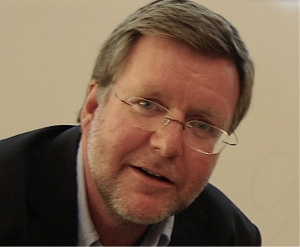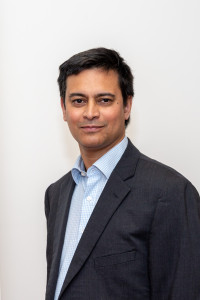Grand Strategies and Grand Statesmanship
Professor Christopher Clark, University of Cambridge
Professor Philip Bobbitt, University of Texas
Professor Patricia Clavin, University of Oxford
Professor Rana Mitter, Harvard University
Professor Arne Westad, Yale University
Toby Lanzer, United Nations
The Right Honorable Jesse Norman, MP
London and Oxford
An EverScholar Residential Seminar in the United Kingdom
June 14-22, 2025
$11,700 per person
How do statesmen think about strategy?
What are the factors – politics, economics, culture – that shape their idea of grand strategy and what acceptable or desirable outcomes might be?
These questions have intrigued political thinkers and actors for millennia, and now, EverScholar ponders them with a team befitting the enormity of the topic – and with you.
This course examines timeless questions, approaching them by querying different ideas of strategy across the 20th century, placing them in historical and cultural context. We examine what states want, and how they express it through the choices and actions of political and military actors and thinkers, concentrating on periods of hot and cold war. In doing so, we shall explore the people, ideas and practices that shape the past, present and likely future of grand strategy in the modern world.
The program looks at both theory and practice at every turn. Our structure is that of case studies, specifically, three pivotal 20th century historical moments and their associated strategic challenges, choices, and key statesmen.
- 1914-1920 (Monday 16 – Tuesday 17): Examination of the strategic decisions and statesmanship leading up to and following World War I.
- 1939-1945 (Wednesday 18 – Thursday 19): Analysis of strategic challenges and choices during World War II.
- 1989-1990 (and 2003) (Friday 20 – Saturday 21): Discussion of the strategic decisions during the end of the Cold War and the early 21st century.
The world breaking and world-making strategies at these inflection points will prove profoundly revealing. They will uncover interwoven, cross-cutting themes such as continuity in US grand strategy, the role of power in German strategy, and the quest for resource security. These themes reveal how geography, institutions, ideology, and history influence strategic decisions and their regional and international ramifications. The program also emphasizes the strategic roles of institutions, exploring the enduring influence of international bodies such as the League of Nations and the United Nations, and the impact of international norms like human rights on grand strategy.
The statesman may vanish or may emerge more crucial than ever from our inquiries. We debate the qualities of leadership, exploring key texts that informed leaders’ ideas of statesmanship. We examine the bases on which they reached decisions, and the role of personality and experience in determining the responses of leaders with reputations as successful and unsuccessful leaders, whose failures resonate through history: Otto von Bismarck; Woodrow Wilson; Franklin D. Roosevelt; Neville Chamberlain; Harry Truman; Jean Monnet; Margaret Thatcher, and Ashraf Ghani.
“Grand Strategies and Grand Statesmanship” aims to equip participants with the skills to think rigorously and historically about strategic principles and to apply these insights to contemporary global challenges. The program values, employs, and promotes a deep understanding of history and humanistic thought, fostering knowledge exchange between scholars and practitioners.
To this end, we have assembled a team of six(!) scholars who are equally at home at the negotiating table in Darfur or Paris; in the State Department or the Security Council; on an advisory team in the White House or on the way to Beijing; or at a blackboard at Oxford or Harvard. Of course they are at home at all these places, as they have actually served in such and similar roles. Brilliant, world-class, renowned scholars, honored diplomats, valued advisors, recognized experts, and beloved teachers, this group of colleagues will join us – and each other – as we all plunge into a subject that has intrigued, vexed, and challenged the great minds for millennia. This is the absolute best way to tackle a topic that is at once seductive and yet resists even a precise definition: by immersing ourselves in it, with a group of great and experienced minds, day after day, seminar after seminar, formally and informally.
And we will do all this in one of the world’s great centers of strategic history, and one of its great centers of strategic sites: the United Kingdom. In London and Oxford, one can’t help but think of Chamberlain’s follies, or Churchill’s zenith, or great thinkers like Mill, Hume, or Shakespeare. The halls of the great libraries, museums, Westminster, and so much more will open to us, as our faculty, so close to the gates of power, help open them to us for our many EverScholar excursions (“Special Events”) during the program.
With you are like-minded friends old and new – your fellow scholars. Every day, you engage in seminar discussions, and journeys to cultural, historic, and artistic sites that are at the heart of this course’s learning. Meanwhile, you enjoy fine accommodations, elite guides, and authentic and gourmet cuisine in the world’s most cosmopolitan culinary city – London.
The program actually begins months ahead with fantastic readings, curated by our faculty; sources you would never have approached or even known about. The reading is its own reward, even as it excites and prepares you for the EverScholar seminar discussions that await you in the UK.
You will return home with a new cohort of friends; freshly acquired expertise and insight; and a life-highlight set of memories.
This, then, is “Grand Strategies and Grand Statesmanship,” an EverScholar program in London and Oxford. Learn more below and join us for this unforgettable experience.


Our Faculty
Syllabus and Structure of the Course
This program is far too intricate to detail in full here; this section serves to illustrate the broad outline and approach of the course.
We gather on Saturday 14 June in London, for a welcome reception and dinner, with our faculty as will be the norm throughout the program. Our first full working day is Sunday 15 June. On that day we will begin with an overview of the great concepts, the classic works, and the theses we will test as we proceed. Even at this early day, at this theoretical point in the program, actual cases and practice will inform our study. Following two morning seminars, we will lunch together. The afternoon will see a third seminar and a visit to an appropriate site; then after a break, dinner together – again, with our faculty at every turn. This general format will repeat in the succeeding days, but we will soon move from the challenge of generating our framework for approaching a moment through a grand strategic lens into the moments themselves. Two days on each of three great moments will ensue. Along the way we will move from London to Oxford to experience a less urban and more cloistered, academic environment as we continue our study; we will ask ourselves whether the change in locale produces a change in ourselves, in our approach, and whether this tells us something statesmen might consider. Then it’s back to London for the concluding days of the program, and as we complete our three moments, we attempt to conclude, we participate in a challenge with a strategic situation – a “case” – to strategize, theorize, and advise on. There may be a class-wide debate as well. Comprehensive details will be provided via a syllabus and guide after registration.
Attendees will take flights back home on Sunday 22 June – unless you decide to stay!
The daily or near-daily site visits to a variety of important sites, closely coordinated with our seminar study and guided by our faculty and expert guides, may involve seminar discussion sessions conducted at the sites themselves. Detailed itineraries will be provided to all course registrants.
In the many months preceding the course (July 2024-June 2025), seminar participants are expected to complete the required reading in the syllabus (more details in “Readings” section below). Our preparatory readings will come to life through this process and will serve as a continuous source of touchstones. These readings will serve a variety of purposes: background classic texts will provide a common reference set; primary sources are always preferred and important; case-specific documents will be used; secondary sources will offer their own wisdom and perspective. EverScholar recognizes that there may be a long gap between initial reading and the course itself; we utilize a variety of resources and approaches to address this, including during the program itself.
Suffice it to say that following this program, grand strategy will be a part of your makeup; statesmanship will be seen anew. You will walk armed with them both, and with your EverScholar colleagues, forever.
Readings
All EverScholar courses actually start months before our meeting. All books and other materials are included with the course. Upon registration, you will receive several preparatory books in short order; the course packet with scholarly articles and other materials curated by our faculty will follow soon after. Primary sources will mix with authoritative texts to produce night after night of joy as you prepare for your return to the life of the mind.
Special Events
Among EverScholar’s unique and most beloved features are our Special Events; sessions at a number of well-known (such as a museum or art gallery) or less-known centers of collection and learning. “Grand Statesmanship and Grand Strategy” will take particular advantage of our location and faculty to produce unforgettable visits, not available any other way. Close reading of key passages from significant texts will frequently reference the very site to be visited; and then, perhaps over a gourmet meal, a discussion synthesizing it all. We will have not only elite guides, but of course our peerless faculty will join us. Picture yourself among a centuries-old surrounding, perhaps ignored by the crowds that walk by, but with the aid of our faculty and your reading, illuminated for you in undreamt of ways. The insight and memories can only be dreamed of now.
Our Learning Locations
Our seminar locations are always chosen to promote the learning experience. In our UK locations, this can only mean tradition-dripping, beautiful places, as only London and Oxford can offer (representative samples shown).


The course begins with an opening reception and dinner (with our faculty, as will be the norm throughout the program) on Saturday, June 14 in London and ends Sunday June 22. We will stay at luxury hotels in London and Oxford with the option for single or double rooms subject to availability.
Pricing will be announced when registration opens. EverScholar offers double occupancy housing, with single supplements offered subject to availability. Deposit of $2,000 per person is due at registration. Balance is due on November 1, 2024. This EverScholar program includes all seminar sessions, housing, meals, readings, transportation (except airfare to and from London), and site visits. There may be limited spots to bring a companion/guest; details and costs for this are described on registration page. Cancellation refund and COVID-19 refund policies are detailed on the registration page – so you can register without worries. We look forward to seeing you in the UK!





